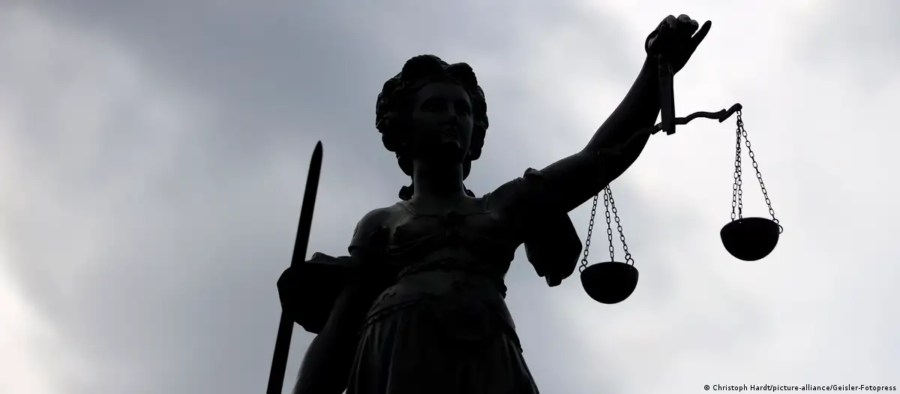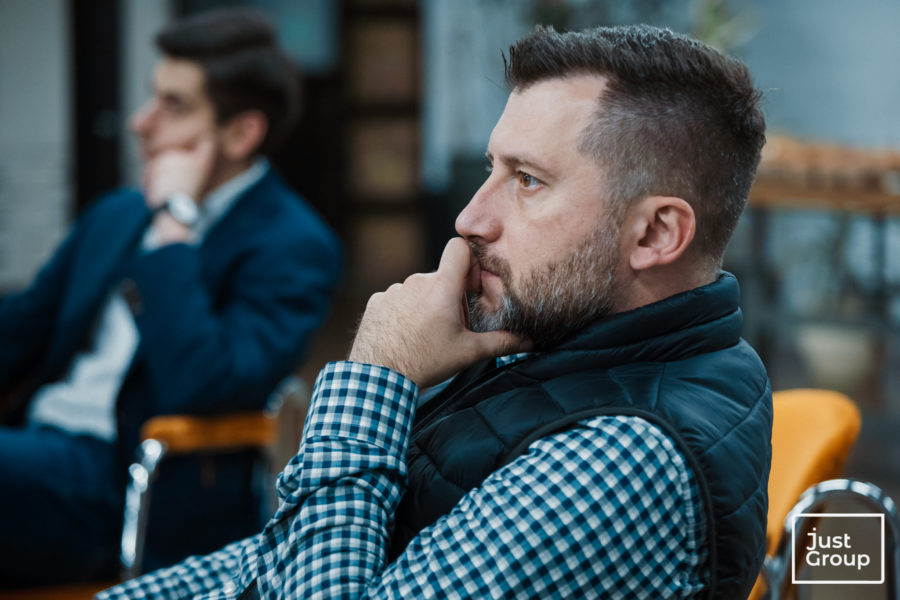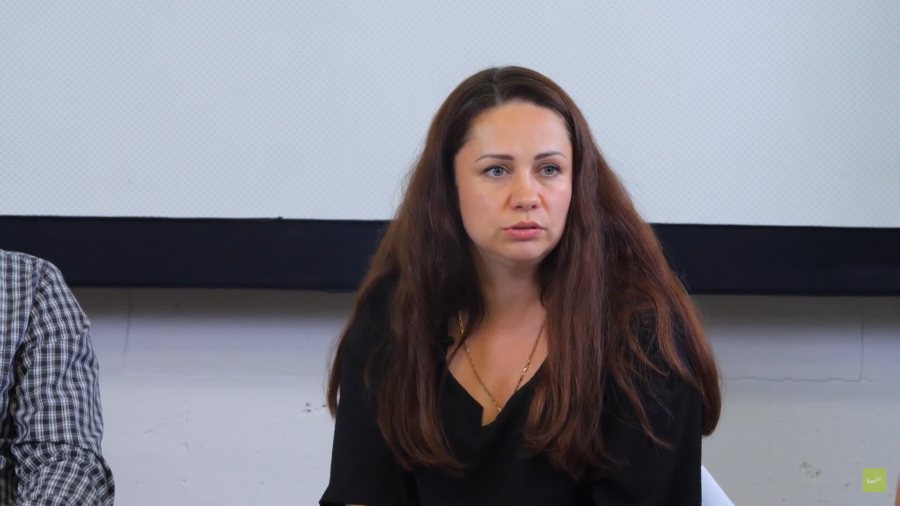How Ukraine can restore the advocacy after de-occupation of territories: expert discussion
After the de-occupation of the territories, the state will face the challenge of how to restore advocacy and local residents’ trust in lawyers in liberated cities and villages. This is one of the most important aspects of the restoration of justice, so the state must decide whether the lawyers who remained working in the occupation will bear responsibility and what responsibility it will be.
 Illustrative image / DW
Illustrative image / DWThis was discussed on January 29 during the online discussion “Should there be responsibility for lawyers for activities in the occupation?”. The event was organised by Human Rights Centre ZMINA with the support of the European Union and the International Renaissance Foundation.
Advocacy director of ZMINA Alena Lunova noted that the role of a lawyer is very important for people who remained in the occupation and who are persecuted for political reasons.
“In the context of de-occupation, which will certainly happen, we have to talk about what to do with those lawyers who, for example, held certain positions in the occupation, or became judges or prosecutors in these territories. So what should be the responsibility for them and should it be?”, Lunova thinks.
According to the partner of AZONES Law Firm, an expert of Ukraine 5 AM Coalition Daria Svyrydova, if the state has a vision – bringing to justice for collaborationism – those lawyers who remained in the occupation and began working in the occupation administrations as so-called judges or law enforcement officers, then there is no specific position regarding lawyers who remained to live in occupation and continued their professional activities. Such a position should be formed among the professional advocacy community, Svyrydova believes. There are discussions with extreme views, the expert says, either to punish all lawyers in the occupation (and there are already two draft laws on the criminalization of the very fact of continuing the work of lawyers), or not to evaluate the activities of lawyers in the occupation at all until the end of the war.
Svyrydova says: 90% of lawyers in Crimea are citizens of Ukraine who have Ukrainian certificates of the right to practise law. That is, 10% of lawyers are replaced by citizens of the Russian Federation who came to this territory and became colonisers.
“Each of those who remained, firstly, was forced to take a Russian passport, and secondly, to become a member of the bar association that was created by the occupiers in this territory. Thirdly, one way or another, these lawyers have to interact with illegally created courts, the so-called law enforcement agencies. And these are the factors without which it is simply impossible to continue their work in the occupied territory”, says Daria Svyrydova.
According to the expert, the very fact of a lawyer’s work under the conditions of occupation should not become a subject of condemnation or persecution. She noted that the Geneva Conventions on the Protection of Civilian Population indicate that the population under occupation must receive effective justice and cannot be deprived of the right to a fair trial. In addition, accused persons should have the right to the assistance of a qualified human rights defender of their choice. Moreover, Ukraine has legislation that, in particular, provides for the provision of legal aid for the protection of our citizens in Russian captivity during the occupation.
“So will the criminalization of the work of lawyers in the occupation comply with Ukraine’s international obligations?”, thinks the expert.
 Daria Svyrydova / Photo: Centre for Investigative Journalism
Daria Svyrydova / Photo: Centre for Investigative JournalismAt the same time, according to Svyrydova, non-judicial mechanisms, in particular lustration, can become a tool for evaluating the activities of lawyers in the occupation:
“Such lustration definitely should not turn into a tool of revenge or collective responsibility for the lawyers who remained in the occupation. Lustration should contribute to the individual assessment of the actions of certain lawyers, cleansing from negative influence and restoration of trust in the legal profession after deoccupation”.
She also reminded that in Crimea, lawyers who defend political prisoners work with risks to their own lives. Such lawyers are persecuted, arrested and discredit campaigns are launched against them in the controlled media. Therefore, the criminalization of advocacy work will have a demotivating effect on these people.
“It is very important to provide proper legal protection to the population of the liberated territories. Because it may happen that after the liberation of these territories there will not be a single lawyer who could or would want to work, and the number of legal issues and challenges faced by the population of the liberated territories is incredibly high”.
Lawyer and managing partner of “Donets and Partners” Law Firm, the military serviceman Artem Donets believes that lawyers who have Ukrainian certificates and in one way or another cooperate with the occupation authorities violate professional ethics, because at one time they took the oath of the lawyer of Ukraine.
 Artem Donets / Photo from personal page
Artem Donets / Photo from personal pageHe noted that he is aware of cases when lawyers with a valid Ukrainian attorney’s licence in the occupied territory hold positions in the so-called state bodies of the occupying state and head the so-called courts. Donets is convinced that the lack of reaction of the self-government of lawyers to similar situations is an avoidance of solving existing problems and systemic inaction.
He also added that he cannot justify either the actions of lawyers in the occupied territory or the inaction of the bar self-government bodies during the ten years of war with Russia.
According to Anastasiia Serbina, the lawyer and the head of the AS Training Group, people in occupation need legal assistance, because life there continues and has many challenges:
“When I ask myself whether we should criminalise the activities of lawyers in the occupied territory, how we should react, whether we should ban or, on the contrary, whether we should allow everything, the first thing I always pay attention to is the person who remains in the occupation. Therefore, for me, the answer to the issue of criminalization of lawyers’ activity is “no”.
At the same time, says Serbina, this does not mean that it is worth acquitting any person who remained in the occupation, having a Ukrainian certificate, and continues to work.
 Anastasiia Serbina / Photo: ZMINA
Anastasiia Serbina / Photo: ZMINA“We have to evaluate the activity of each lawyer separately. If a lawyer with a Ukrainian certificate continues to work in the occupation and at the same time does not join illegal bodies, does not become a judge or a prosecutor, which is currently being prosecuted criminally in our country, then it is obvious that the lawyer’s activity in itself should not be criminalised”, Serbina believes.
Roman Tytykalo, a lawyer and member of the Ukrainian Bar Association, also does not support prosecuting all lawyers who work in the occupation. In his opinion, those who cooperate with the occupation authorities should be prosecuted.
At the same time, he said that the bar self-government bodies should really respond to violations of lawyer ethics and facts of cooperation with the occupiers, however, according to him, qualification and disciplinary commissions do not know how to notify lawyers, in particular in the territory of occupied Crimea, about violations and consideration of such disciplinary proceedings. However, according to the lawyer, this issue regarding the notification of persons who are in the occupied territories can be settled, in particular, through the relevant decisions of the bar self-government bodies.
Tytykalo reminded that last year, following a complaint by ZMINA human rights defenders, Ukrainian lawyer Yuliia Marchuk was disbarred for the first time due to violation of legal ethics and cooperation with the occupiers. Roman Tytykalo called it a positive experience, but noted that there could have been more such examples.
Also, according to the lawyer, a separate problem is that the bar self-government bodies in Crimea, those that should have moved to the controlled territory, in particular to Kherson, remained on the peninsula.
 Roman Tytykalo / Photo from open sources
Roman Tytykalo / Photo from open sources“It would be possible to create appropriate commissions and the Bar Council of the Autonomous Republic of Crimea, which would provide an opportunity to consider complaints and everything else in the Kherson region. Currently, these complaints are being considered in other regions, but together with the restoration of the bar self-government in the de-occupied territories, there is also an urgent need to restore the relevant bodies now in the free territories”, Tytykalo says.
The lawyer also reported that the Ukrainian Bar Association has developed a position on approaches to the restoration of Ukrainian advocacy in the de-occupied Crimea. You can find the concept here.
The event was supported by the European Union and the International Renaissance Foundation within the framework of the joint initiative European Renaissance of Ukraine. The event represents the position of the authors and does not necessarily reflect the position of the European Union or the International Renaissance Foundation.
If you have found a spelling error, please, notify us by selecting that text and pressing Ctrl+Enter.















